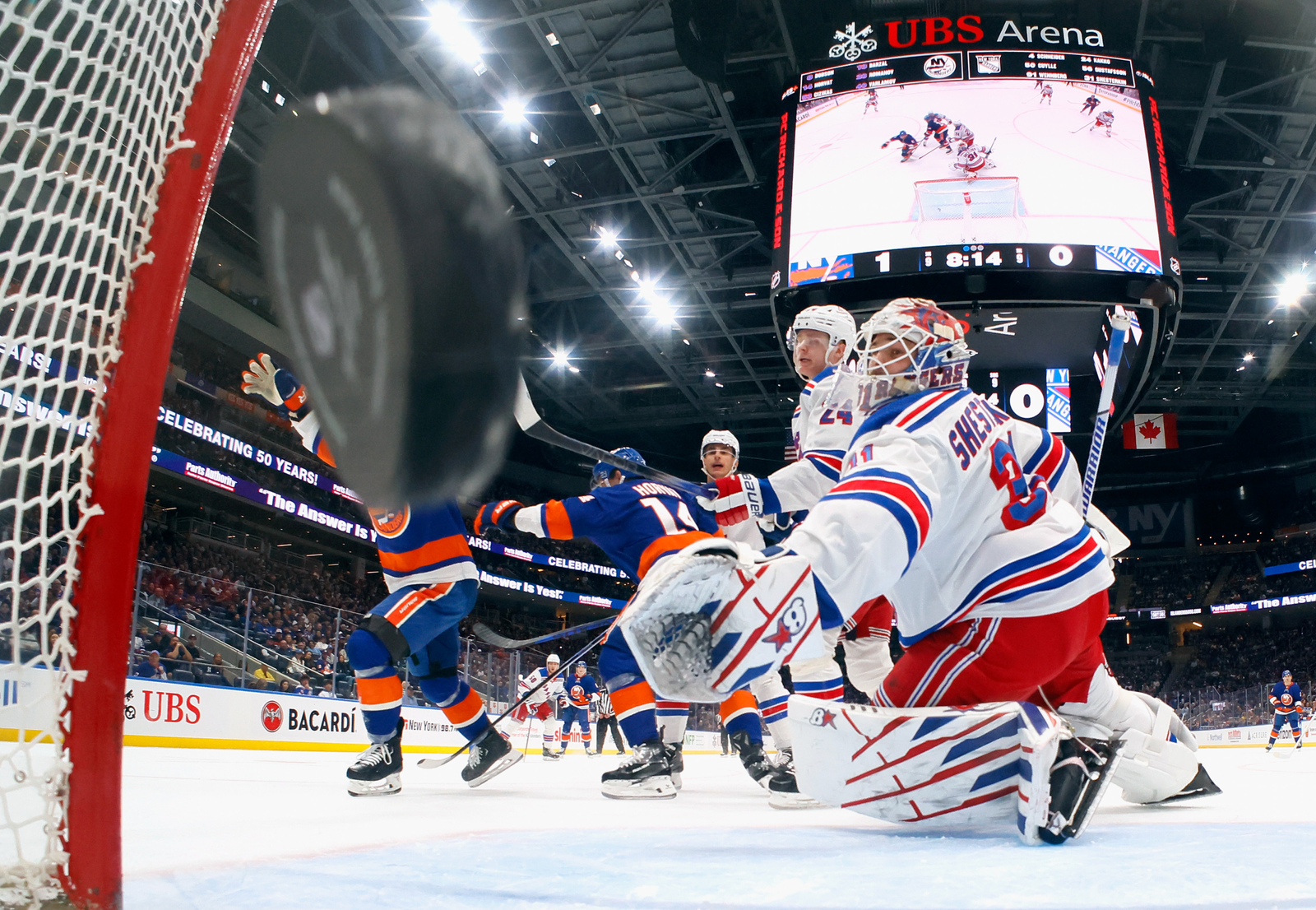A worrying trend has emerged for the Rangers in recent weeks.
They’ve repeatedly gotten off to slow starts, falling behind early before having to claw their way back.
And in the vast majority of cases, they’ve relied on their stellar power play to bail them out and bring them back into games.
It happened again during their 4-2 loss to the Islanders on Tuesday night at UBS Arena.
The Rangers came out sleepwalking and quickly fell into a 3-0 deficit in the first period.
But two subsequent power-play goals in the second period, from Chris Kreider and Adam Fox, respectively, cut the Rangers’ deficit to 3-2.
“We [the power-play unit] want to make a difference in games,” Fox said after the game. “Especially the timeliness of goals, when you’re down and need one, I know recently we’ve stalled at home in some games, down 2-0 and gotten one and that’s kind of jump-started us. It’s been good to be productive, and even if we don’t score, get some momentum off [the power play], too.”
Though the Rangers didn’t complete the comeback Tuesday night, they’ve for the most part been able to do so recently.
In their 5-2 win over the Canadiens on Sunday, the Rangers fell behind 1-0 in the first period before a second-period power-play goal from Mika Zibanejad tied it at 1-1 and a third-period power-play goal from Kreider gave them a 2-1 lead.
In their 6-5 overtime win over the Flyers on March 26, they quickly fell behind 2-0 in the second period before Zibanejad’s power-play goal later in the period cut their deficit to 2-1 and sparked an offensive onslaught. In their 4-3 shootout win over the Panthers on March 23, the Rangers fell behind 2-0 before Fox’s power-play goal in the second period cut their deficit to 2-1.
You get the point.
Yes, the Rangers’ comeback ability is commendable, but their slow starts are not a trait they’d want to carry into the postseason.
With obviously much-higher stakes and ice time much more restricted to teams’ best players, opponents will far less lose focus or take their foot off the gas pedal after taking leads — and likely leave fewer openings for comebacks.
And like, Tuesday night, it’s a tough ask to keep producing comebacks. Against a desperate Islanders team, Tuesday night was a good measure of the intensity the Rangers will face from the get-go in the postseason.
“I thought [the Islanders] came out with more intensity than we did,” forward Jimmy Vesey said Tuesday night. “That’s gotta be clear to everyone that watched the game. They’re playing for their life. Even though we’ve played some teams that are in similar situations to them, I don’t think anyone has come out that hard against us, and that was the difference in the game. The rest of the game, I thought we pretty much took over.”
Head coach Peter Laviolette recently downplayed the Rangers’ slow starts.
“There have been some starts that I haven’t liked, but if I’m being honest, not that many,” Laviolette said this week. “I don’t think it’s something that we’ve talked about on a consistent basis. There’s always things you talk about in stretches. … Whatever it might be, there’s always these stretches. You address them, you try to get better and check the box, but then something else is wiggling off in a different direction and you gotta try to bring that back in. I don’t think it’s been a major issue.”
But they seem to keep happening.
And beyond their propensity to fall into early deficits, this recent stretch has again reinforced just how reliant on the power play the Rangers are.
The Rangers’ 64 power-play goals are tied for third-most in the NHL, but they have just 162 five-on-five goals — 15th in the league. They also rank 15th in even-strength goals allowed. Even worse, the Rangers rank 20th in high-danger even-strength chances created, per Hockey Reference, with 581.
It’s become clear the Rangers have a habit of starting slow, and rely heavily on their power play.
Will it come back to bite them?







